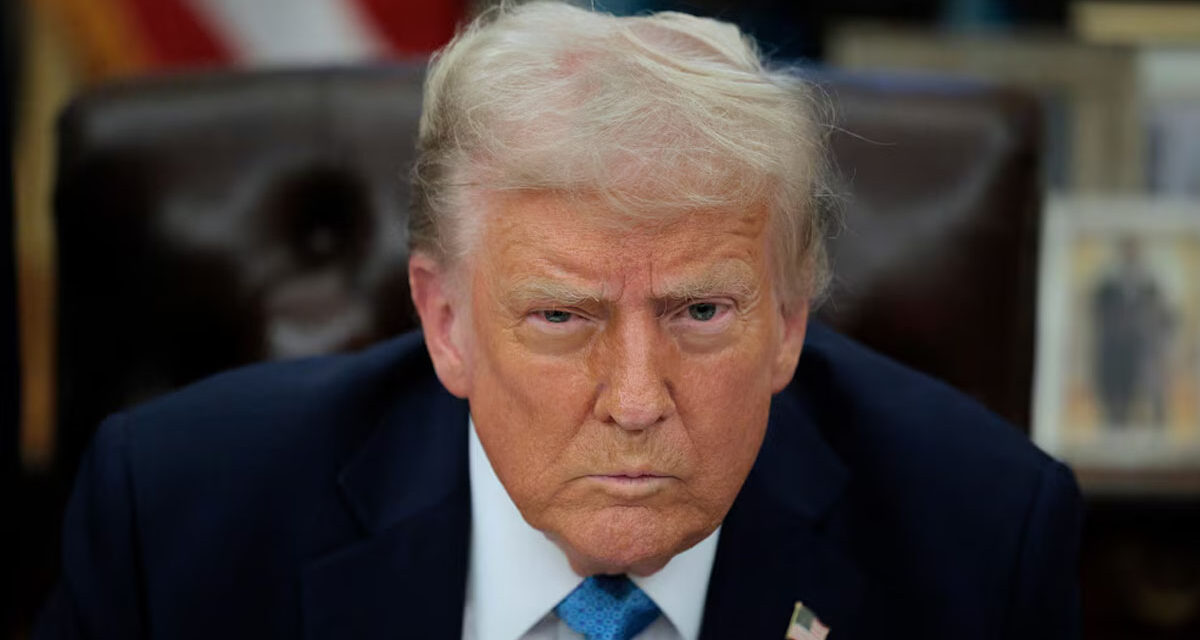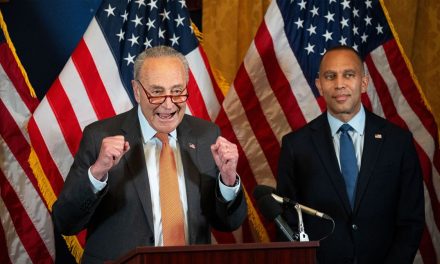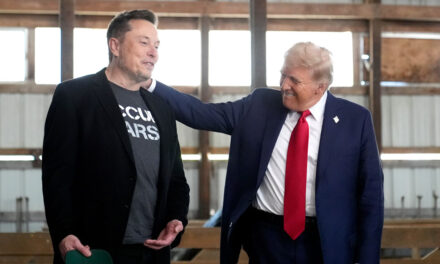
Trump: Eliminate Taxes for Everyone Earning Less than $150,000

President Donald Trump is pushing for a major overhaul of the U.S. tax system, aiming to eliminate income taxes for individuals earning less than $150,000 per year. U.S. Commerce Secretary Howard Lutnick confirmed the plan in recent interviews, stating that it is a key goal of the Trump administration.
Commerce Secretary Howard Lutnick has been the primary spokesperson for this initiative, discussing the proposed tax cuts in interviews with CBS News and Fox News. According to Lutnick, Trump’s goal is to ensure that individuals earning under $150,000 pay no income taxes at all. However, he acknowledged that the plan remains aspirational at this stage, with many details yet to be determined.
How Would This Work?
While the specifics of the tax cut remain unclear, the general idea is to shift the federal revenue model away from income taxation and toward tariffs on imported goods. Trump has also suggested replacing the Internal Revenue Service (IRS) with an “External Revenue Service” focused on collecting duties from foreign sources. The administration believes that tariffs can generate enough revenue to offset the loss of income tax collections from middle-class Americans.
However, tax experts warn that eliminating income taxes for such a large group could have major economic implications. According to Carl Johnson, a certified public accountant, there may be provisions that allow some taxpayers to qualify for the exemption while others do not. Additionally, many Americans earning under $150,000 pay more in payroll taxes than in income taxes, meaning this plan may not significantly reduce their overall tax burden.
Additional Tax Reduction Measures
Beyond eliminating income taxes for middle-class Americans, Trump has proposed several other tax cuts, including:
- Ending taxes on overtime pay – Workers who earn additional income through overtime would no longer pay income taxes on those earnings.
- Eliminating taxes on tips – This would particularly benefit service industry workers who rely on gratuities for a significant portion of their income.
- No taxes on Social Security benefits – While many retirees with lower incomes already pay little or no tax on their Social Security income, this proposal would ensure that no one pays taxes on these benefits, regardless of other earnings.
- Deductions for car loan interest – Trump has suggested allowing individuals to deduct the interest paid on auto loans, which could provide additional financial relief for car buyers.
The Bigger Picture: Trump’s Overall Plan
Trump’s tax strategy is rooted in the belief that reducing the tax burden on individuals will stimulate economic growth and job creation. His administration has already enacted a series of tariffs on countries such as Canada, Mexico, China, and the European Union, arguing that these measures will generate revenue and encourage domestic manufacturing.
Lutnick described tariffs as “the most important thing America has ever had” and dismissed concerns that they could lead to a recession. He also defended Trump’s decision to impose tariffs on Canadian goods, arguing that the U.S. economy provides a crucial foundation for Canada’s economic success.
Additionally, Trump has signaled a desire to eliminate the IRS entirely, replacing it with a system focused on revenue collection from foreign trade rather than domestic taxation.
While the proposal to eliminate income taxes for those earning under $150,000 is ambitious, it faces several hurdles. First, Congress would need to approve such a sweeping change, and it is unclear whether lawmakers—especially those concerned about the growing federal deficit—would support such a plan.
Second, eliminating income taxes on a broad scale could reduce federal revenues significantly. This raises questions about how government programs, including Social Security and Medicare, would be funded if payroll taxes remain intact but income taxes are abolished.
Experts also warn that eliminating overtime and tip taxes could distort the labor market, incentivizing employers and workers to structure compensation in ways that maximize these untaxed earnings.
Although Trump’s tax proposals are still in their early stages, they have already sparked debate among policymakers, economists, and the public. If Republicans maintain control of Congress, significant tax reforms could become a reality. However, many details still need to be worked out, and the ultimate impact on the economy and government revenue remains uncertain.
NP Editor: Don’t know if Trump can get this done, but his “External Revenue Service” puts us on the path. But the debt has to be taken care of as well. It will be a tough road.




























Every Epic and History making Journey began with a Tough Road!
It was always the better Road than NO Road.
Darren. 2025
Ignorance is not bliss. Do you have any idea what level of tariffs we would need to replace income tax? Trump is ignorant. He references 19th century tariffs as how we raised funds for government, government back that was microscopic compared to today.
This would require tariffs to reach historically high and broad levels and would constitute a large, regressive shift in who finances the federal government. In this scenario, the tax burden would shift from higher-income households to low- and moderate-income households.
If one starts with the implausible assumption that a universal tariff would not change U.S. demand for imports, the tariff rate would need to be 78% to replace the individual income tax.
AG: here’s the deal. Flood the Zone for EO’s, proclamations, and memorandums. No new laws, at least anything requiring a consensus. Then Block the Sun with an opaqueness never seen before while claiming total transparency while pushing all stories out with your wild ideas, claims, and accusations to divert the press and the masses.
Thus, why not toss out no taxes below $150K a year. The fact that this statement automatically would signal a defunding of social security and medicare, who cares. Just toss it out there and even if it does not happen, we-the-people will probably believe it did. Just like all those factories, all that coal mining, all that oil drilling, were tossed out but never happened last time. He can’t even deport more than Biden, but his production perp-walks convince his sheeples that great things are happening as he claims he’s getting rid of criminals, but since no due process, who knows how many non-criminal victims he has ensnared.
“It makes great TV” and that’s what a lot of this is about. Ratings.
Need to see more details but these Americans pay more in payroll taxes than income taxes. That’s a fact Jack and it need to get worse. Payroll taxes fund Social Security and Medicare, those costs have Trump inflation written all over them. That means this plan tanks those programs.
He wants to make it up with his “ERS” or external revenue service to make up for the losses with tariffs that he says will collect funds from foreign importers. Yes, tariffs collect funds for the US General Fund, same place income taxes go. It’s a tax that you ultimately pay in price. Not the foreign source, not the supplier, but they all pass it on to you, the little guy. But tariffs do not cover Social Security and Medicare, never will, and ultimately — tariffs are paid by the consumer via higher prices. Just look at the numbers, tariff revenues will never match tax revenues; it’s a distraction, it’s a lie, to make you feel Trump is doing something beyond spewing bullshit to please the mob.
Trump just hopes he can screw with it enough to make manufacturing in America cheaper again. Here’s an example: we pay $100 for an Italian thingee. It costs them $50 for them to make, it costs us $60 to make. Trump puts a 25% tariff on it. Now we pay $125 for it; the Italians make the same amount or less, the $25 goes to the General Fund, but now the thingee can be produced in the US, and if priced at $110, the US manufacturers make the same as the tariffed Italians. The math works but chance are, we will just buy black market goods and continue to save the money. Fake prices are to be avoided like fake news.
There are many problems and softness in this economic model such as IF manufacturing returns to American, the tariff tax revenues funding the tax cuts go away making success a failure. Also, the rise in prices is not a direct line to the 25% tariff as sellers seek to cut costs elsewhere to keep price increases as low as possible.
Most economists say it’s a flawed plan, the ERS is weaponizing tariffs to fund Trump’s administration just like taxes do. Deposited in same General Fund.